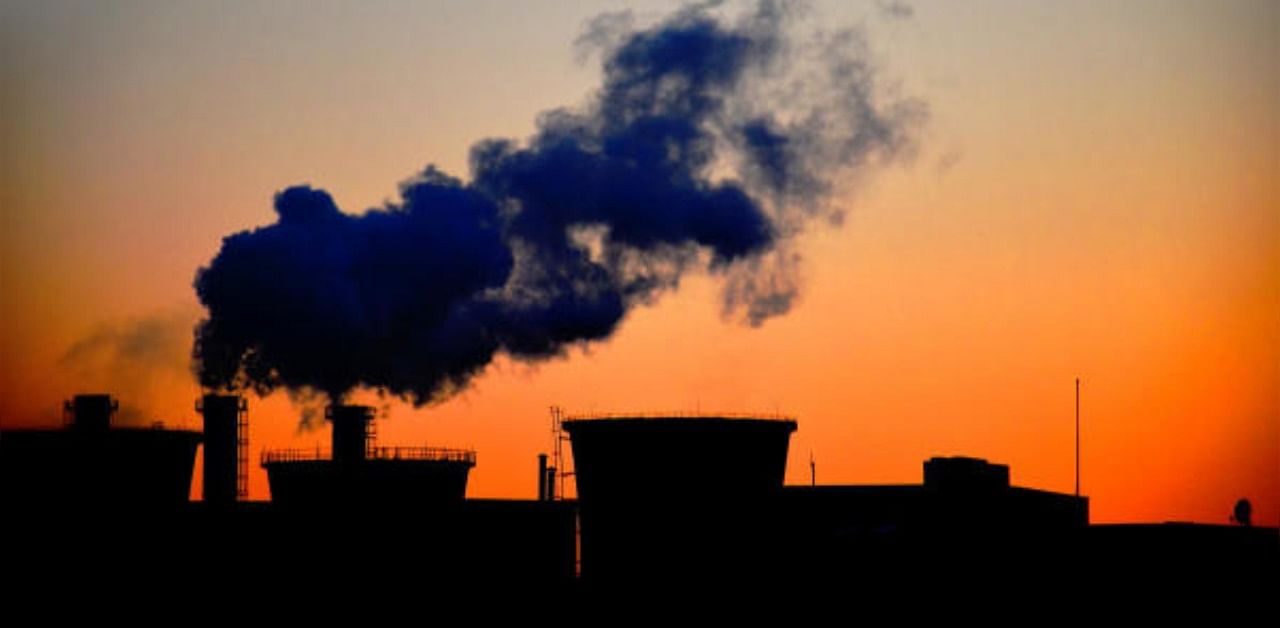
Development funding for efforts to tackle air pollution falls far short of what is needed in a world where nine in 10 people breathe air that is damaging their health - a problem thrown into sharp focus by the pandemic, researchers said on Monday.
A report released to mark the first International Day of Clean Air for Blue Skies showed grant funding for initiatives to curb air pollution amounted to $273 million from 2015 to 2019.
That is a tiny fraction of the development aid provided by governments and philanthropic organisations - yet devoting more cash to clean air could boost other global goals too, it said.
Former UN Secretary-General Ban Ki-moon noted in a foreword that outdoor air pollution is responsible for more than 4 million deaths each year, but political will to address the problem is increasing as evidence of the damage becomes clearer.
This year, the Covid-19 pandemic has demonstrated how the world can pull together when faced with "an existential threat", Ban wrote. He called for global collaboration and bold leadership to address poor air quality.
"With a strategic and well-resourced approach to cleaning our air, we can improve health, build resilience to future pandemics, boost productivity, reduce health costs, and help tackle climate change," he added.
The nonprofit Clean Air Fund, which works to combat air pollution and raises money for that aim, tracked $118 million in grants from philanthropic foundations to improve outdoor air quality in the last five years.
At least another $155 million came from official donors, including governments and development banks, it found.
That compares to nearly $153 billion in total development assistance from the world's wealthy governments in 2019.
The air quality funding measured in the report backed projects from technology to measure levels and sources of air pollution, to educational campaigns, fitting scrubbers to industrial chimneys and introducing cleaner electric buses.
The research showed that loans to improve air quality were far higher than grants, with $2.4 billion going to that purpose in the five-year period, mainly to support activities in China, which launched a major bid to cut pollution.
Matt Whitney of the Clean Air Fund told the Thomson Reuters Foundation that while grant funding had fallen between 2018 and 2019, the overall trend was for it to grow.
While aid may be squeezed due to economic recessions near term, studies have shown how respiratory and heart conditions linked to air pollution make people more susceptible to contracting and suffering severe symptoms of Covid-19, he said.
Lockdowns had also revealed the speed with which air quality could be improved with less traffic and industrial activity, making urban areas more livable, he noted.
"There really is an opportunity to tackle this problem. We know what the solutions are, the benefits can be felt immediately, and who doesn't want to have healthier people and cleaner air?" he said.
Desire for change
In a survey conducted by the Clean Air Fund in May and June, at least two-thirds of citizens in Britain, India, Nigeria, Poland and Bulgaria said they supported stricter regulation to tackle air pollution.
In Nigeria and India, more than 90 per cent of respondents wanted to see air quality improved in their area.
India is home to about half of the world's 50 most polluted cities, according to Swiss technology firm IQAir, with emissions fuelled by industry, vehicle fumes and coal-fired power plants.
Whitney said spending development aid on clean public transport, for example, was an efficient use of money because it tackled both air quality and climate change while enabling people to access jobs and services more easily.
Air quality can also be improved through political will to enforce pollution controls on power plants or giving incentives to stop farmers burning crop stubble near cities, he added.
The report urged foundations and governments to join up their efforts on cleaner air for broader reach and impact.
"If we can deliver (clean air), we will also unlock solutions to other critically pressing problems, like climate change and deadly diseases," said Maria Neira, director of the World Health Organization's public health and environment department.
"The benefits would reach the poorest and most vulnerable first," she added.